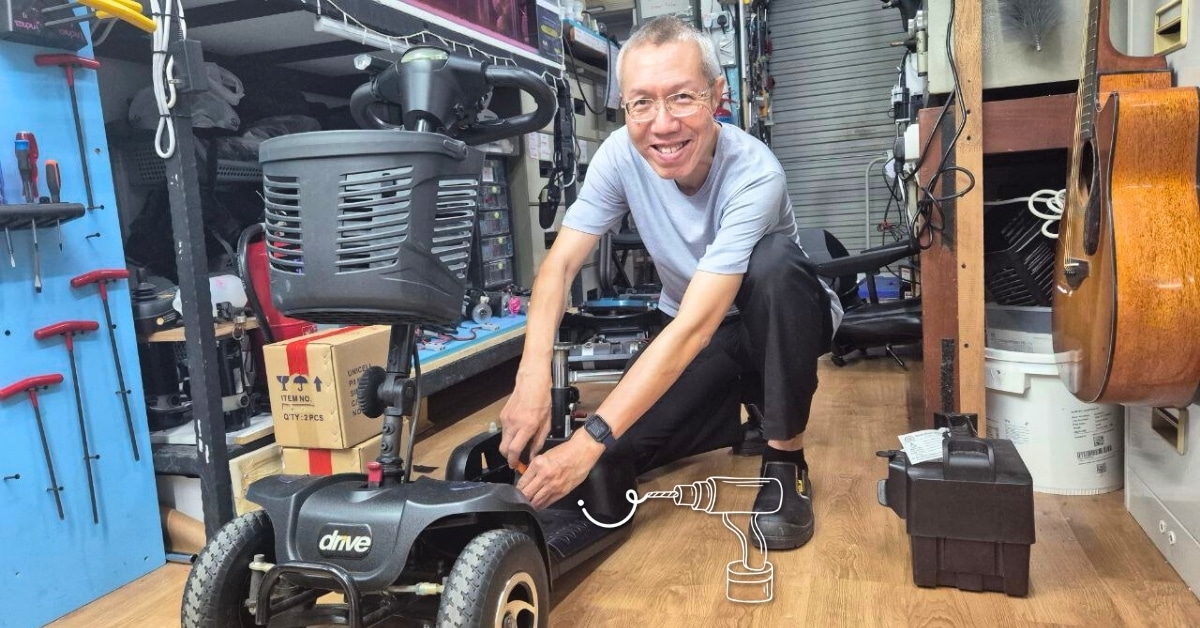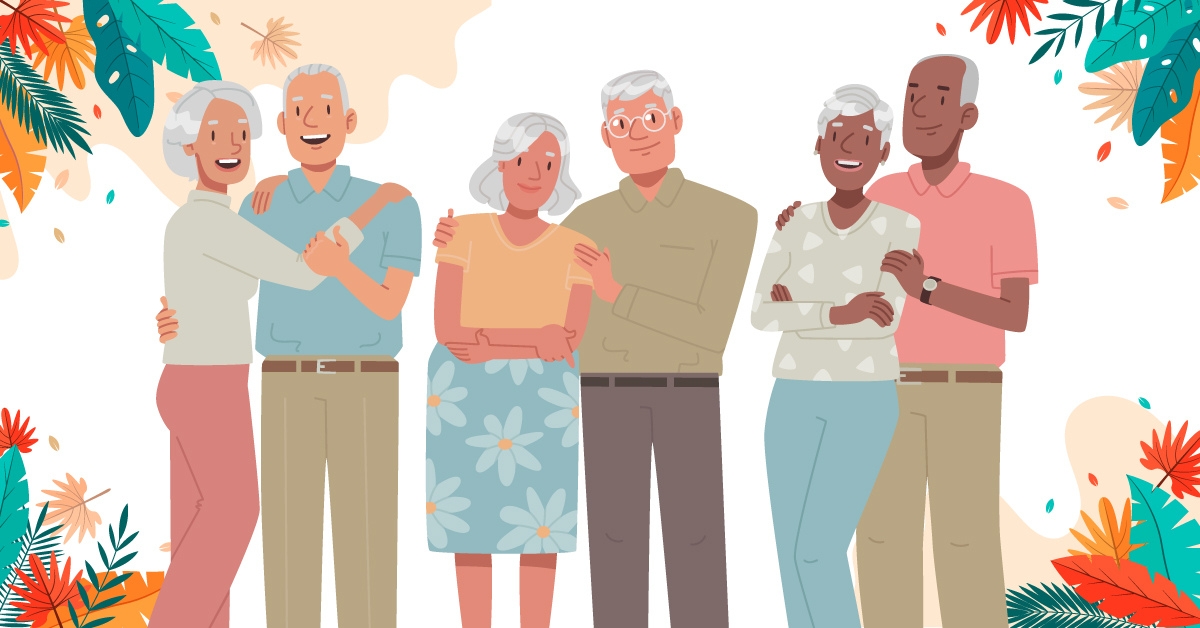
Getting old can be challenging. However, there are many myths of aging that are unfounded.
These myths, whether physical or mental, can get in the way of making adaptations in life which could be for the better.
They could create negativity that prevent seniors from experiencing other positive aspects of living.
Therefore, it is important to explore these myths and unveil the truths.
We debunk six myths of ageing that might be affecting your life.
Advertisement
Age-old myths of ageing
Myth 1. Seniors are more forgetful as all cognitive functions decline
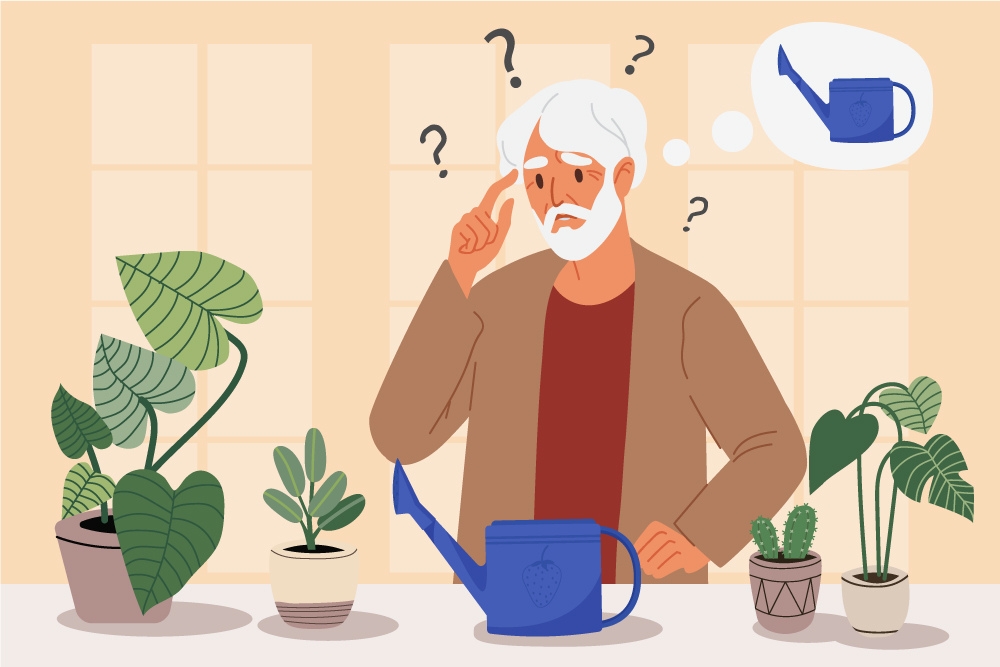
While it is true that some cognitive abilities like memory would deteriorate over time, others like vocabulary and spatial perception stay intact as time passes.
In fact, even for memory, whether the cognitive function would decline depends on what kind of memory it is.
Published research by the University of Alabama’s Department of Neurology has shown that though memories like source memory (memory of the source of the learnt information) and prospective memory (memory of actions to be taken) decline with age, memories such as temporal order memory (memory of timing and sequence of past events) and procedural memory (memory of skills like bike-riding) are not affected.
In general, not all cognitive abilities deteriorate with age.
It is important to keep the brain active, and here are some ways you can do so:
- Play card games such as bridge or solitaire
- Build vocabulary by writing an unfamiliar word a day, then using the word a few times the next day
- Take up a new activity like Zumba, line dancing or pickleball
- Learn a new skill or teach it to someone else
- Learn a new language
Myth 2. Some diseases are sex specific
Many people have the misconception that certain diseases, like breast cancer, are sex specific – in that they only affect males or females.
While there are indeed diseases that only affect people of one sex due to biological differences, such as polycystic ovary syndrome (PCOS) which is usually diagnosed in women and prostate cancer in men, it is dangerous to assume that some diseases affect one sex more than the other.
This myth of ageing can result in wrong treatments or late diagnoses.
Breast cancer, osteoporosis, and menopause are three diseases that affect men too.
While females are around 100 times more likely to get breast cancer than males, the possibility of males getting it is not zero. As for osteoporosis, about one in three 50-year-old women and one in five 50-year-old men are affected.
Lastly, while symptoms can be different, men experience hormonal changes and can get ‘andropause’ (the male version of menopause) as they age too. Experts believe that the probability of andropause is around 20% for 50-year-old men and rises to 50% for 60-year-olds.
On the flipside, chronic obstructive lung disease and Parkinson’s disease are two medical diagnoses that are underdiagnosed in women.
So don’t get complacent, do go for regular health checkups to catch any potential diseases early.
Myth 3. Seniors need less sleep
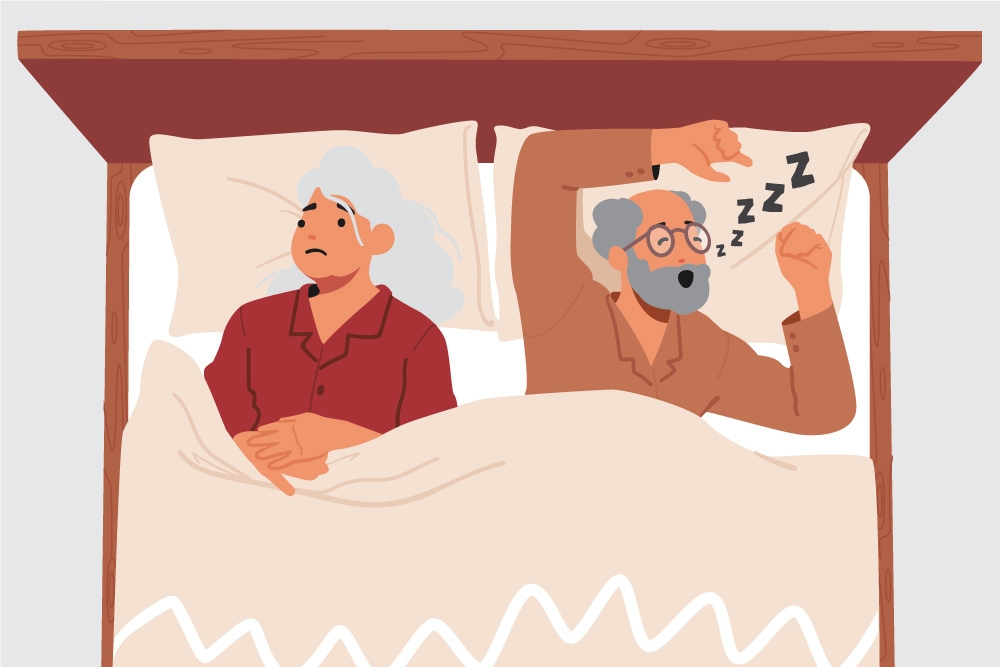
With ageing, it is common to find it more difficult to fall and stay asleep. In fact, insomnia is one of the most common sleep problems for seniors aged 60 and above. However, this does not mean that seniors do not need as much sleep as the young do.
According to the National Institute of Aging, all adults need about seven to nine hours of sleep each night, no matter how old they are. It is important to keep this in mind as sleep deprivation can worsen emotional and memory issues and lead to more physical accidents.
To ensure sufficient sleep in the face of insomnia, seniors can cultivate healthy sleeping habits such as avoiding use of electronic devices and heavy eating before bedtime.
Myth 4. Seniors do not have sex anymore
Many people believe that sexual activity declines with ageing, due to either loss of interest or sexual dysfunction. However, there is no evidence that supports this myth of ageing.
A 2007 study by the New England Journal of Medicine conducted among 3,005 US adults (1,550 women and 1,455 men) aged between 57 and 85 has shown that age has no necessary link with decline in sexual interest.
In fact, a research letter by JAMA Internal Medicine (a peer-reviewed medical journal) reports that “women between the ages of 40 and 65 who place greater importance on sex are more likely to stay sexually active as they age.”
At the same time, while the likelihood of sexual activity does decrease with age for both males and females, there are ways to minimise it. For instance, making lifestyle changes such as drinking alcohol in moderation, controlling weight, eating a healthy diet and quitting smoking.
Myth 5. Seniors are less employable as they age
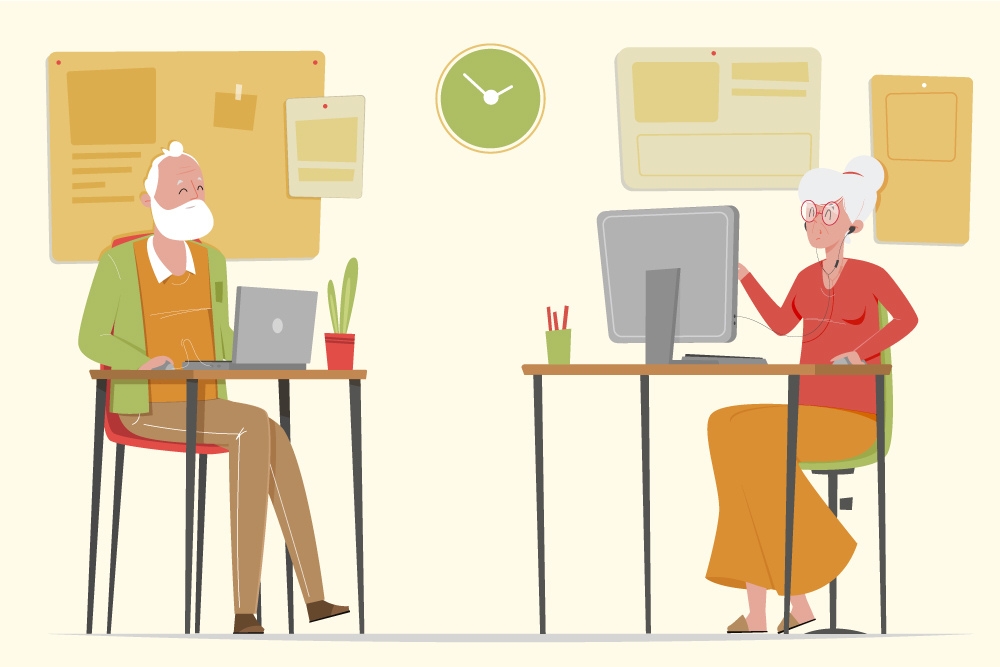
People assume that older workers are less employable because of lower productivity and their inability to learn new things. These assumptions are not true and are detrimental to building healthier and more tolerant workplaces with a greater age diversity.
Research has shown that seniors are just as effective at work as the young. In the service industry, senior workers may even perform better due to their better emotion control and problem-solving skills.
However, age does bring some differences to senior workers’ employment preferences – Forbes has found that senior workers are more interested in gig work than traditional employment types.
This is because the flexible timing of gig jobs allows them to work while maintaining retirement life. Meanwhile, some gig employers have indicated that they are more willing to hire older workers because of their wealth of experience and expertise.
Myth 6. Seniors are always set in their ways and can't learn new things
Time magazine refutes this by reporting that the neuroplasticity of the brain remains stable throughout life Neuroplasticity refers to the brain’s ability to be moulded or altered through learning or new experiences. This means that the ability to learn does not decrease with age.
Brain neuroplasticity unlocks new ways of thinking:
- Being able to see both sides of the same coin
- Looking at the big picture, or thinking divergently
- Relative rather than black-and-white thinking
These brain changes add wisdom to ageing. Hence, we should always endeavour to continue learning new things and trying new experiences.
Getting older is not necessarily about entering a period of diminishing physical health and mental capability. The onus is on the individual to embrace new ways of doing things and it starts with a positive mindset.




